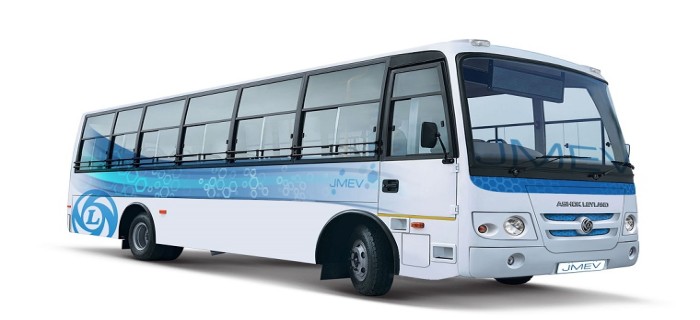
Delhi hopes to get 100 more electric buses by April.
17 Feb 2023
Transport commissionerAshish Kundra said five of the buses from the manufacturing site have been sent for testing by Pune’s Automotive Research Association of India The national capital is expected to get 100 more air-conditioned low-floor electric buses by the April end which will take the number of such vehicles in the Delhi Transport Corporation (DTC)’s fleet to 400 as part of efforts to promote noise and pollution-free transportation, officials aware of the matter said on Wednesday. Transport department officials last week inspected the prototypes of the buses manufactured in Karnataka’s Dharwad. Transport commissioner Ashish Kundra said five of the buses from the manufacturing site have been sent for testing by Pune’s Automotive Research Association of India. “After the tests are over, the supply of the first batch of 100 buses is likely to start.”
He said it will be the first batch of the 1,500 buses, which will be added to the fleet by the year-end. “We have 300 electric buses among [DTC’s 7,200-fleet] in operation. Delhi is stepping towards noise and pollution-free electric mobility which is also important in improving the air quality in the city,” said Kundra.
Another official said the buses will be operational as Delhi hosts the intergovernmental forum G-20’s meetings this year. India assumed the forum’s presidency in December. It will host G20 leaders and 200 meetings related to 32 sectors across the country this year.
The buses will be disabled-friendly and have features such as GPS, panic button, CCTV cameras, live tracking, and seats reserved for women, said a third official.
In 2021, the Delhi government decided to only procure electric buses. It seeks to increase the strength of its fleet to 11,000 and to ensure that 80% of all public buses are electric by 2025-26 as part of plans to cut down pollution levels.
Vehicular emissions contributed around 9% of the PM10 load and around 20% of the PM2.5 load in Delhi, according to a 2016 Indian Institute of Technology Kanpur study. When inhaled, particulate matter or PM can cause serious health problems.
The government also aims to phase out CNG buses. DTC switched over to CNG-run buses from diesel vehicles in April 2002, following a 1998 Supreme Court order. No vehicle over 15 years old can operate in the national capital.
The Delhi government in December signed an agreement with a Tata Motors subsidiary for adding 1,500 electric buses to DTC’s fleet in one go.
Transport minister Kailash Gahlot said under chief minister Arvind Kejriwal’s leadership, Delhi has been a front-runner in adding electric buses to its public bus fleet. “It is also part of the Delhi government’s plan to reduce air pollution and the results are also showing. We are progressing towards our mission of having 80% electric buses in the public bus fleet by 2025.”
Centre for Science and Environment executive director (research and advocacy) Anumita Roychowdhury called the addition of electric buses to the public transport fleet very important as it will contribute towards zero emissions mass mobility. “Since many people use public transport, electric buses will reduce energy intensity for public transportation and will reduce exposure to toxic pollution. It is an important step towards improving air quality.”



leave your comment